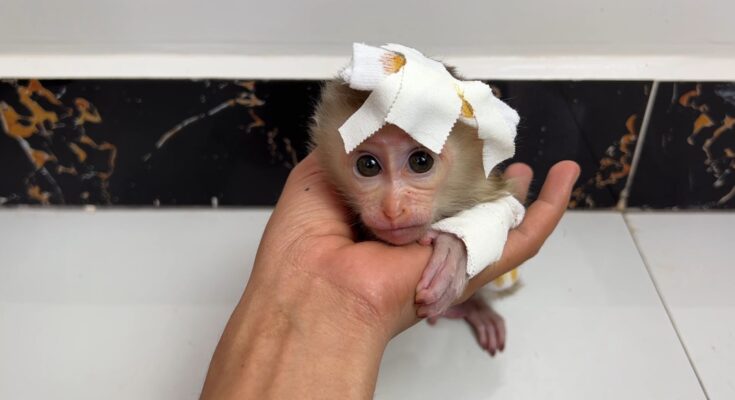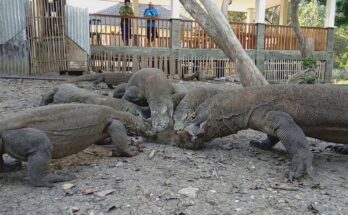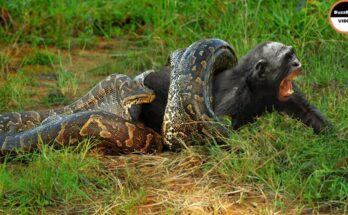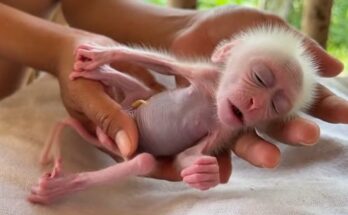Baby monkeys are among the most curious and charming creatures in the animal kingdom. With their big eyes, playful personalities, and boundless energy, it’s no wonder people are fascinated by them. From their tight bond with their mothers to their mischievous antics, baby monkeys capture the hearts of anyone who watches them. Let’s dive into what makes baby monkeys so incredibly interesting!
1. Born to Cling
One of the most unique traits of baby monkeys is their instinct to cling to their mothers from the moment they’re born. Whether on the belly or back, baby monkeys hold tight as their mothers move through the trees or across the ground. This strong bond helps them stay safe in the wild and strengthens their emotional connection.
2. They Learn Through Play
Just like human toddlers, baby monkeys learn about the world through play. They chase each other, climb, wrestle, and explore everything around them. These playful activities are not only adorable but also important for developing social and survival skills.
3. Each Species Is Different
There are over 260 species of monkeys, and baby monkeys can look very different depending on the species. For example:
- Baby capuchins are tiny and expressive, often riding on their mom’s back.
- Macaque babies are born with dark fur that lightens as they grow.
- Proboscis monkeys are born with blue faces that gradually turn pink as they age.
No matter the species, though, each baby monkey has its own unique personality and behavior.
4. They Communicate Early
Even as babies, monkeys are great communicators. They use facial expressions, sounds, and body language to express themselves. A squeal might mean fear or excitement, while a soft chirp can signal comfort. Their communication skills are essential as they start learning group dynamics and social rules.
5. They Grow Up in a Village
Most baby monkeys grow up in tight-knit troops or families. These groups help raise and protect the young, often with older siblings or even other females helping out — a behavior known as “alloparenting.” This shared care system helps baby monkeys develop faster and feel more secure.
6. They’re Surprisingly Smart
Monkeys are incredibly intelligent, and their brainpower starts showing early. Baby monkeys can learn to solve problems, use tools, and even mimic human behaviors in some cases. Watching a baby monkey figure something out can be just as fascinating as it is cute.
7. They Melt Hearts Everywhere
Whether it’s a video of a baby monkey snuggling a soft blanket or clips of them swinging clumsily from branches, baby monkeys have taken over the internet with their cuteness. Their innocent expressions and playful nature make them one of the most beloved animals online.
Final Thoughts
Baby monkeys are more than just adorable — they’re smart, social, and full of personality. Watching them grow and interact with their world gives us a glimpse into the rich emotional lives of primates. Whether in the wild or in conservation settings, baby monkeys continue to spark our curiosity and bring smiles to faces all over the world.
Mind-Blowing! Can Monkeys Actually Do Your Household Chores?
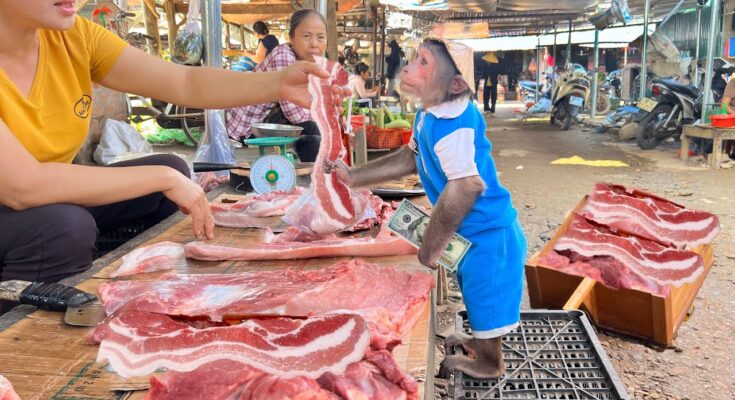
When we think about household chores, we usually imagine robots or human helpers taking on the tasks. But what if monkeys could actually assist with daily chores? It may sound like something out of a sci-fi movie, but trained monkeys have been known to perform basic household tasks!
Can Monkeys Really Help with Chores?
Monkeys have incredible dexterity and problem-solving skills, making them surprisingly capable of handling these simple jobs.
Monkeys as Service Animals
These trained monkeys can offer life-changing assistance, but they require years of specialized training.
Challenges of Using Monkeys for Household Work
So, Can Monkeys Replace Housekeepers?
The short answer is no—at least not in a practical way. While trained monkeys can help in some cases, they are not a realistic replacement for human or robotic helpers. However, their intelligence and capabilities continue to amaze scientists, and who knows what the future holds?
